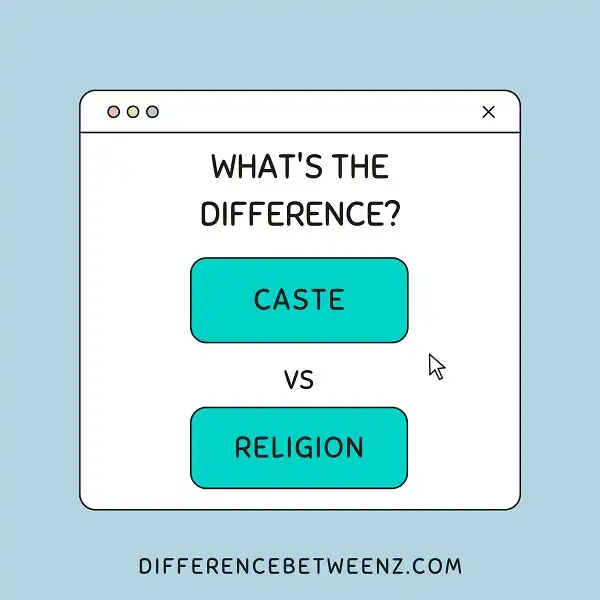Confused about the difference between caste and religion? Understanding the distinction between these two terms is essential in today’s globalized world. Caste and religion are often intertwined, but they do not mean the same thing. We have all heard stories of oppression based on either one or both and undoubtedly this injustice should end. In this post, we will look at the differences between caste and religion more closely in order to gain a better understanding of their dynamics and implications for society as a whole. Ready to dive into an exploration of caste vs religion? Let’s go!
What is Caste?
- Caste is an ancient system that was originally used to classify people into distinct social groups. These groups were meant to identify a person’s role in society, from their profession to their place of worship.
- Caste was determined by birth and marriage was often restricted within different social groups. This system has put many people into rigid, life-long categories, limiting their access to resources and opportunities.
- Caste continues to be widely practiced today and has been blamed for inequality and human rights violations. Caste is a complex topic that should not be ignored, as it shapes the lives of millions around the world and perpetuates existing power dynamics.
What is Religion?
Religion is an important part of many cultures, providing members with a sense of identity, spiritual guidance, and even a moral code to live by. Religion has existed since pre-historic times, demonstrating the importance it has held over generations.
- Religion is often defined as the belief in and worship of supernatural power and usually involves participating in certain devotional rituals or observances.
- Religion typically centers on faith in the divine power, whether this power is seen as one and indivisible or composed of a pantheon of deities, each with its own personality that must be respected and honored.
- Religion can also encompass philosophical beliefs and discoveries concerning our purpose on Earth and how to best live our lives. Religion may differ depending on culture but it ultimately serves as an important pillar for how humankind interacts with each other as well as its god/s.
Difference between Caste and Religion
Caste and religion are two distinct concepts that play a major role in many societies.
- Caste refers to a social group of people who have the same status or rank within a particular country, while religion is based on spiritual beliefs. Caste systems have been around for centuries, whereas religions are thought to be more recent concepts.
- Caste is seen as having divided economic and social levels among individuals and communities in some countries, while most religions tend to emphasize unity and promote harmony among their believers.
- Caste systems generally include specific customs and rituals that must be followed by their members, while religion has various teachings and beliefs that followers must abide by.
- Caste systems also use different criteria such as descent, color, and ethnic composition to determine who can be accepted into the community, but religious adherents need only to share common values or spiritual goals.
Both caste and religion can strongly influence the lives of people belonging to it; however, the differences between them should not be overlooked.
Conclusion
The difference between caste and religion is that caste is an inherited status, while religion is a chosen belief system. Both systems have had a significant impact on Indian society, but they do not operate in the same way. Caste has been used to justify social inequality and oppression for centuries, while religion offers people hope and a sense of community. It will be interesting to see how India’s growing population and changing demographics affect both caste and religion in the years to come.


